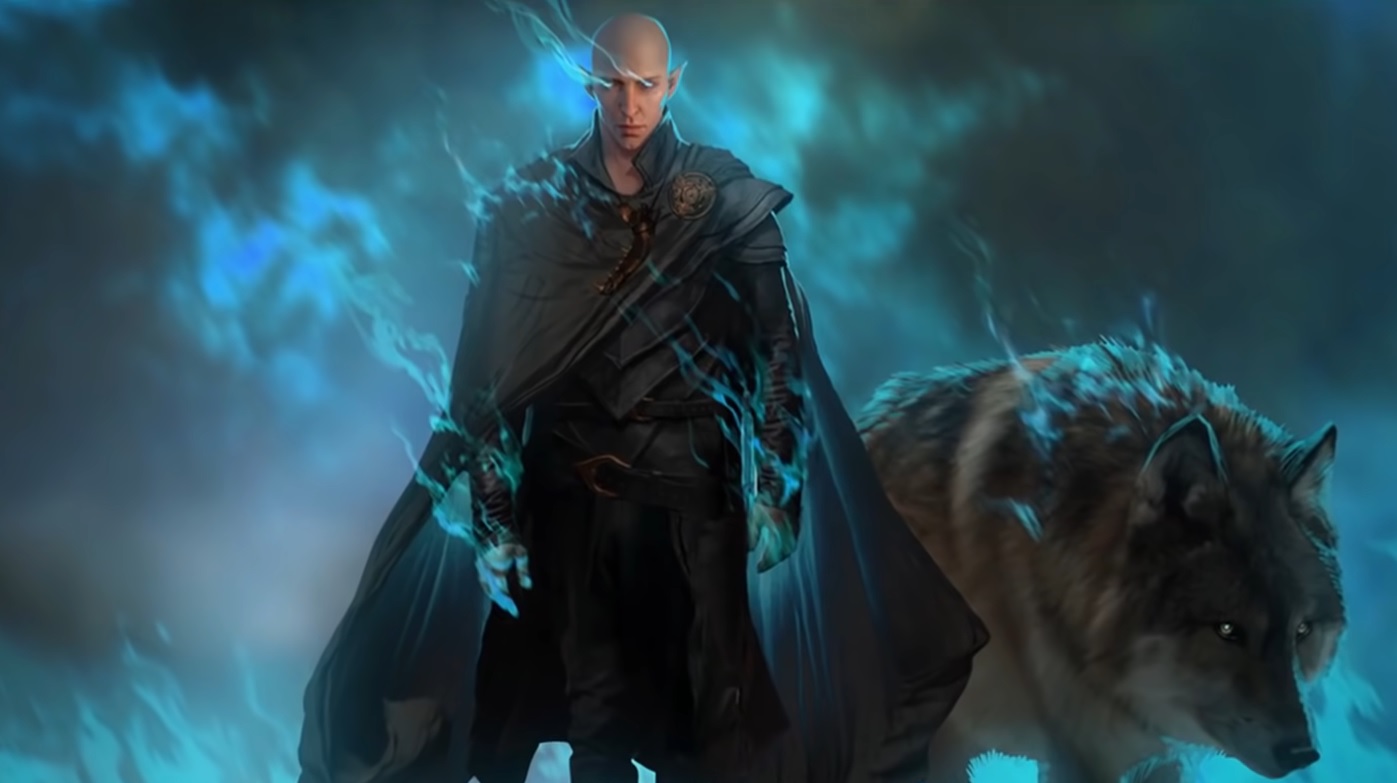
Aaryn Flynn wishes that BioWare had stuck to shipping modding tools with Dragon Age games.
The future of Dragon Age feels particularly unclear right now. Information on the sequel Dragon Age: Dreadwolf is still sparse and BioWare recently laid off over 50 employees, including the writer of Dragon Age’s most beloved character. Given how bleak that all seems, I’m plenty happy to imagine an alternate universe future for the series as shared by its former studio lead, who wishes BioWare had kept a more “PC-centric, Neverwinter-like identity” for Dragon Age.
Aaryn Flynn spoke in Edge issue 389 about his career joining BioWare, eventually becoming general manager, and then leaving to become CEO and founder of Inflexion Games and its upcoming crafting survival game Nightingale.
Flynn mentions some of his early work at Bioware developing a toolset for Neverwinter Nights that was ultimately used by the developers and players. “We wanted everybody to be able to say ‘I, as a modder, can build the same thing that Bioware does.’ We didn’t want any exceptions to that.”
It presented difficulties, of course, building the train and the tracks at the same time, as Flynn puts it, but it meant that Neverwinter’s toolset became a sort of recruiting tool between the studio and its modding community. After Neverwinter Nights, the studio moved on to start Dragon Age: Origins.
(Image credit: BioWare)
“Dragon Age in the early days had its fair share of identity crises,” Flynn says. “Was it going to be a tools-driven, modding-driven game like Neverwinter Nights? Was it going to be a big singleplayer RPG like The Elder Scrolls IV: Oblivion?”
“Dragon Age on PC shipped with the toolset, so we did do that,” Flynn says.
Dragon Age: Origins does have a quite prolific modding community that’s created new party members, tons of hairstyles and armor sets, combat mods, and more. The output for Dragon Age 2 was noticeably smaller. Then BioWare switched to DICE’s Frostbite Engine, notoriously difficult for modders to use, especially without official tools, and Dragon Age: Inquisition’s modding community was hamstrung.
“I wish we’d kept that up and stuck to that,” Flynn says of shipping Dragon Age games with modding tools. “Unfortunately we got, I’d say, a little too homogenous between Mass Effect and Dragon Age. I wish we would have kept more of a PC-centric, Neverwinter-like identity for Dragon Age.”
Flynn describes the move to Frostbite as a push to standardize tools internally across BioWare’s then-growing studios. “We had so many different engines for so long at BioWare,” Flynn says, explaining that the studio hoped to create a more common vocabulary across teams who could share what they’d built with one another’s projects.
The casualty was the modding community Dragon Age had cultivated. Players have done their best to impose mods on Dragon Age: Inquisition over the years, but always without that aspirational level of access that Flynn references as an ideal from Neverwinter Nights.
We still don’t know much about the fourth Dragon Age game, but it’s pretty safe to assume that it won’t be heading back to those “PC-centric” glory days of the early 2000s, much as I might wish it would.



